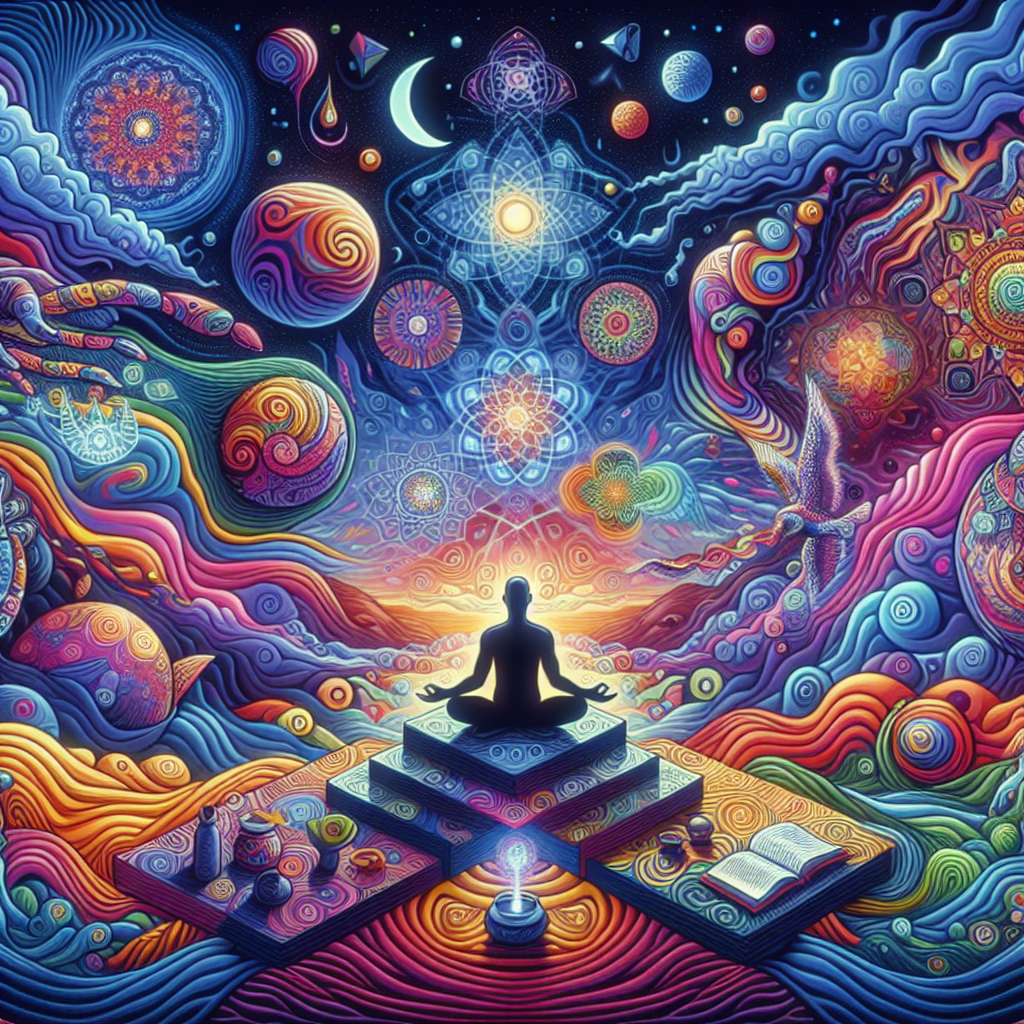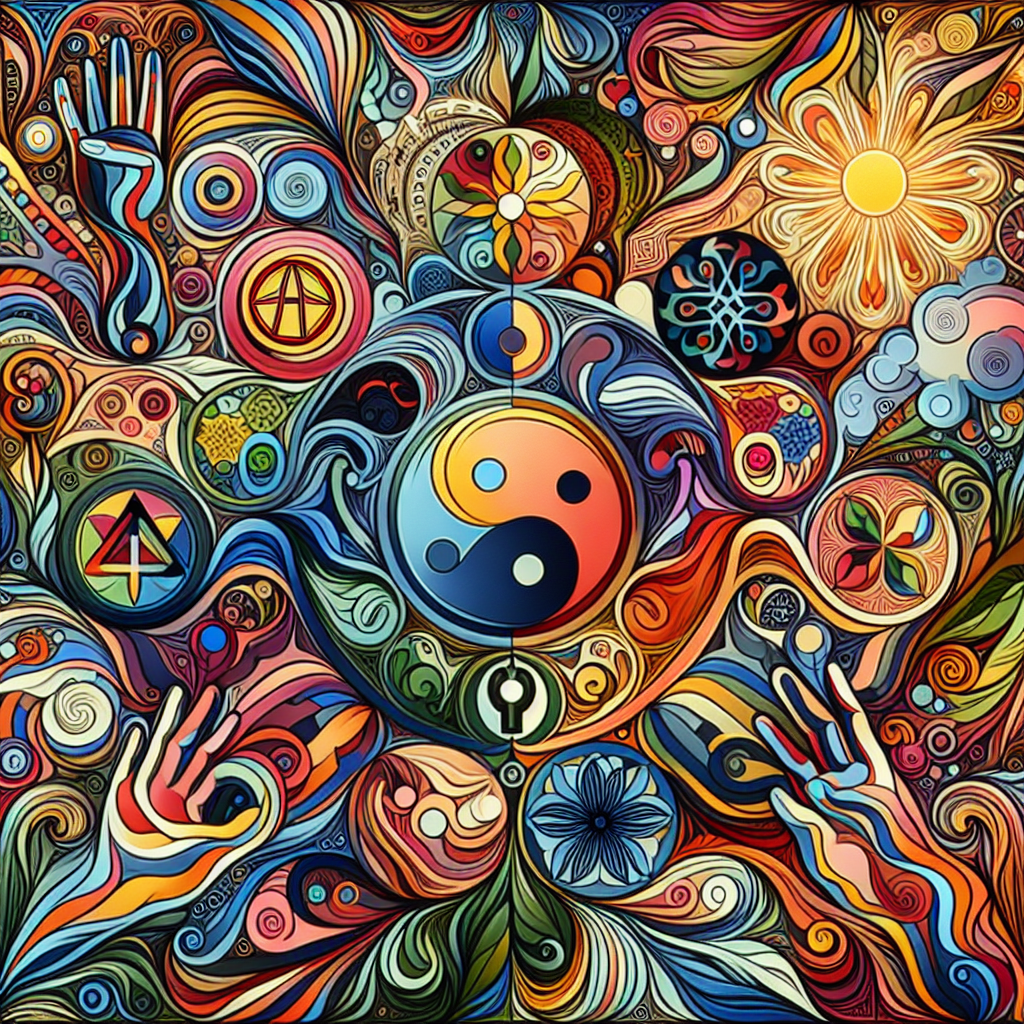The Role of Psychedelics in Holistic Well-Being

Discover more about the role of psychedelics in holistic well-being. Uncover the potential benefits and understand the science behind it. Visit My Vibrant Vitality now to learn more.
Exploring the Impact of Psychedelics on Emotional and Mental Health
Psychedelics, once relegated to the fringes of society, are now experiencing a renaissance in the realm of mental health and holistic well-being. These substances, which include LSD, psilocybin (found in magic mushrooms), and DMT, have been the subject of numerous scientific studies in recent years. The results have been nothing short of astounding, revealing that psychedelics may have a profound impact on emotional and mental health.
Psychedelics work by interacting with serotonin receptors in the brain, which can lead to alterations in thought processes, perceptions, and emotions. This can result in experiences that are often described as mystical or spiritual, and which can lead to significant shifts in one’s perspective on life. These experiences, while profound, are not the sole reason for the potential benefits of psychedelics. The real magic, it seems, lies in the aftermath of these experiences.
Research has shown that the use of psychedelics can lead to long-term improvements in mood, outlook, and overall well-being. In fact, a study published in the Journal of Psychopharmacology found that individuals who used psychedelics reported greater life satisfaction and well-being than those who did not. This suggests that the effects of these substances extend far beyond the duration of the psychedelic experience itself.
Moreover, psychedelics have shown promise in treating a variety of mental health conditions. For instance, studies have found that psilocybin can be effective in treating depression, anxiety, and post-traumatic stress disorder (PTSD). In these studies, patients who had not responded to traditional treatments reported significant improvements after undergoing therapy sessions that incorporated the use of psychedelics.
The potential of psychedelics in treating mental health conditions is so promising that the U.S. Food and Drug Administration (FDA) has granted “breakthrough therapy” status to psilocybin for treatment-resistant depression. This designation is reserved for treatments that have shown significant potential in clinical trials, and it allows for an expedited review process to bring the treatment to market more quickly.
However, it’s important to note that the use of psychedelics is not without risks. These substances can lead to intense and sometimes distressing experiences, and they should always be used under the guidance of a trained professional. Furthermore, while the research is promising, more studies are needed to fully understand the potential benefits and risks of these substances.
In conclusion, the role of psychedelics in holistic well-being is a fascinating area of study that holds great promise. These substances have the potential to revolutionize the way we approach mental health, offering new avenues for treatment and a deeper understanding of the human mind. As research continues, it’s clear that the conversation around psychedelics is shifting, moving away from stigma and towards a recognition of their potential benefits. However, as with any powerful tool, they must be used responsibly and with a deep respect for their potential to both heal and harm.
The Role of Psychedelics in Enhancing Mind-Body Connection

The role of psychedelics in holistic well-being is a topic that has been gaining significant attention in recent years. This is largely due to a growing body of research suggesting that these substances, when used responsibly and under the guidance of a trained professional, can have profound effects on mental health and overall well-being. One of the most intriguing aspects of this research is the potential role of psychedelics in enhancing the mind-body connection, a fundamental aspect of holistic health.
The mind-body connection refers to the relationship between our mental and physical health. It is a concept that has been central to holistic health practices for centuries, with the understanding that our thoughts, feelings, beliefs, and attitudes can positively or negatively affect our biological functioning. Conversely, what we do with our physical body—what we eat, how much we exercise, even our posture—can impact our mental state. This interconnection is something that modern medicine is increasingly recognizing as crucial to overall health and well-being.
Psychedelics, such as psilocybin (found in magic mushrooms), LSD, and ayahuasca, have been found to significantly enhance this mind-body connection. These substances work by altering perception and cognitive processes, often leading to experiences of ego dissolution, or a loss of the sense of self. This can result in a greater sense of connection to the world around us, including our own bodies.
In fact, research has shown that psychedelics can lead to lasting changes in personality traits related to openness and mindfulness, both of which are closely linked to a strong mind-body connection. Openness refers to a willingness to experience new things and to change one’s mind in the face of new information, while mindfulness involves being fully present and engaged in the current moment. Both of these traits can enhance our awareness of our bodies and our physical health.
Moreover, psychedelics have been found to be effective in treating a range of mental health conditions, including depression, anxiety, and post-traumatic stress disorder (PTSD). Many of these conditions are characterized by a disconnection from the body, with sufferers often reporting feelings of being ‘stuck in their heads’. By enhancing the mind-body connection, psychedelics can help to alleviate these symptoms and promote mental health.
However, it’s important to note that the use of psychedelics should not be taken lightly. These are powerful substances that can have profound effects on the mind and body, and they should always be used responsibly and under the guidance of a trained professional. Furthermore, while they can enhance the mind-body connection, they are not a ‘magic bullet’ for health and well-being. They should be seen as one tool among many in the pursuit of holistic health, alongside other practices such as healthy eating, regular exercise, and mindfulness meditation.
In conclusion, the role of psychedelics in enhancing the mind-body connection is a fascinating area of research that holds great promise for the future of holistic health. By helping us to better understand and appreciate the interconnection between our minds and bodies, these substances could play a key role in promoting overall well-being. However, as with all aspects of health, it’s important to approach their use with care and respect for their potential power.
Psychedelics and Spirituality: A New Approach to Holistic Well-Being
The role of psychedelics in holistic well-being is a topic that has been gaining significant attention in recent years. This is largely due to a growing body of research suggesting that these substances, when used responsibly and under the guidance of a trained professional, can have profound effects on mental health and spiritual growth. This new approach to holistic well-being, which combines the use of psychedelics with traditional therapeutic techniques, is opening up exciting new possibilities for individuals seeking to improve their overall quality of life.
Psychedelics, such as psilocybin (found in magic mushrooms), LSD, and ayahuasca, have been used for centuries by various cultures around the world for their spiritual and healing properties. These substances are known to induce altered states of consciousness, during which individuals often report experiencing profound insights, feelings of interconnectedness, and a heightened sense of empathy and compassion. These experiences can lead to significant shifts in perspective and behavior, which can have lasting positive effects on mental health and well-being.
In recent years, scientific research has begun to explore the potential therapeutic benefits of psychedelics. Studies have shown that these substances can be effective in treating a range of mental health conditions, including depression, anxiety, post-traumatic stress disorder (PTSD), and addiction. Furthermore, research suggests that the benefits of psychedelic therapy extend beyond symptom reduction, with many individuals reporting improvements in overall well-being, life satisfaction, and spiritual growth.
The use of psychedelics in a therapeutic context is typically accompanied by a process of preparation and integration, which involves working with a trained professional to make sense of and integrate the experiences induced by these substances. This process is crucial for ensuring that the insights gained during psychedelic experiences are translated into lasting changes in behavior and perspective.
The integration of psychedelics into mainstream mental health care represents a significant shift in our approach to holistic well-being. Rather than focusing solely on symptom reduction, this approach recognizes the importance of spiritual growth and personal development in promoting overall health and happiness. By facilitating profound shifts in perspective and behavior, psychedelics can help individuals to overcome mental health challenges, improve their relationships, and lead more fulfilling lives.
However, it’s important to note that the use of psychedelics is not without risks. These substances can induce intense and sometimes challenging experiences, and their use should always be supervised by a trained professional. Furthermore, they are not suitable for everyone, and their use should be carefully considered in consultation with a healthcare provider.
In conclusion, the role of psychedelics in holistic well-being is a promising area of research that is opening up new possibilities for mental health care. By facilitating profound shifts in perspective and behavior, these substances can help individuals to overcome mental health challenges and improve their overall quality of life. However, their use should always be supervised by a trained professional and carefully considered in consultation with a healthcare provider. As research in this area continues to evolve, it is hoped that the potential benefits of psychedelics will become more widely recognized and accessible to those who could benefit from them.